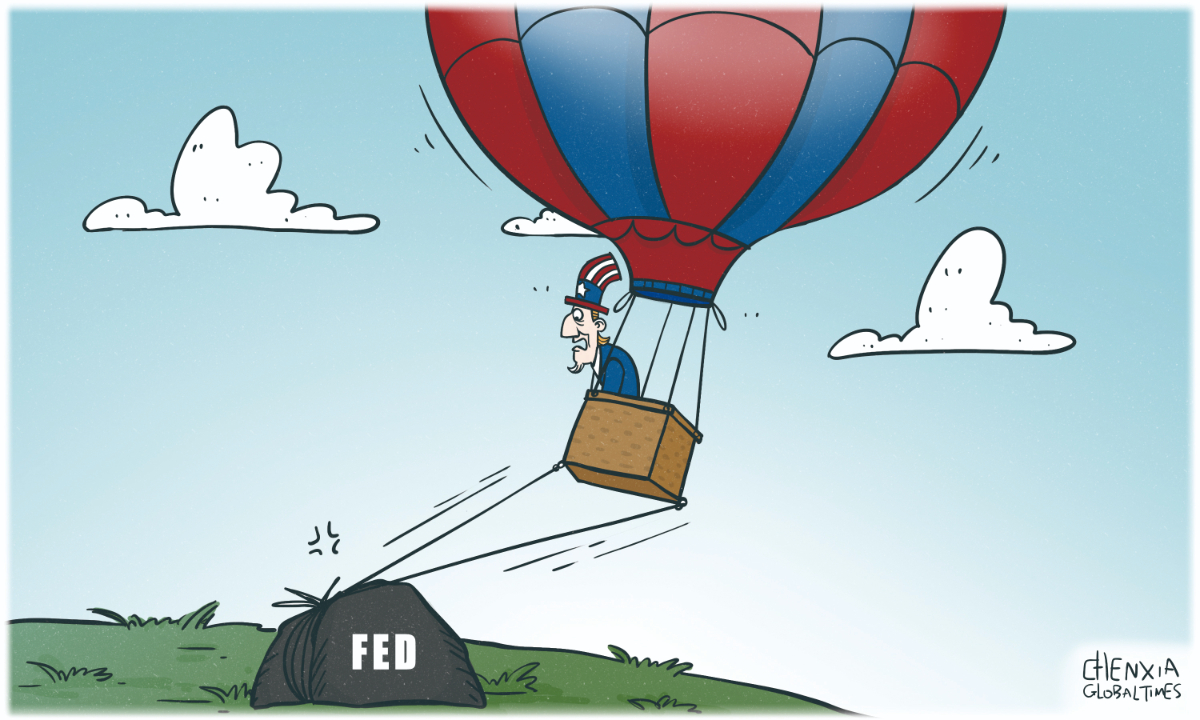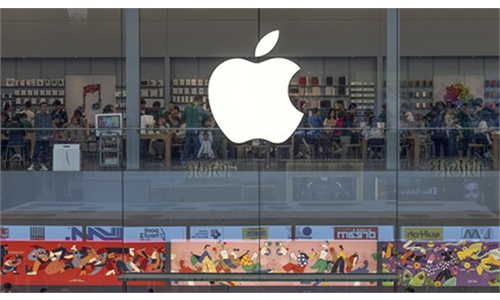
Illustration: Chen Xia/Global Times
How would a strong US dollar eat into the profits of US multinational companies such as Apple and Microsoft? This should be fully taken into consideration when the US Federal Reserve raises its benchmark interest rates.
Facing the highest levels of inflation in over 40 years, the Fed in June raised its benchmark interest rates by 75 basis points, the biggest increase since 1994. US' interest rate hikes have generated a spillover effect in the foreign exchange market, resulting in a relentless rally in the US dollar and devaluation of many Asian currencies, including the Japanese yen.
In Japan, Apple has raised prices for its major products such as iPhones and iPads. The iPhone 13 previously priced at 98,800 yen ($730), now costs 117,800 yen, an increase of 19 percent, according to media reports. Analysts believe one reason behind the uncommon price adjustment is that Apple has to reset its prices in response to yen's precipitous drop in value.
Some are concerned that price adjustment will reduce the competitiveness of Apple products in the Japanese market. What's worse, the impact won't be limited to only the Japanese market. Luca Maestri, chief financial officer at Apple, was quoted as saying in a New York Times report in May that the rising dollar is hurting Apple's revenue. "With respect to foreign exchange," he said, "we expect it to be a nearly 300-basis-point headwind to our year-over-year growth rate."
Apple is not the only one that has been hit by strong dollar. Microsoft has reportedly cut its revenue and profit outlook for its fourth fiscal quarter ending June 30, citing currency fluctuations. The strength of the US dollar is denting the value of overseas earnings by American multinational firms, making some American products less competitive in economies whose currencies have weakened.
While a strong dollar may help the Fed tame inflation, rate hikes impact American multinational firms in largely negative ways. Many companies in industries that the US leads in, such as consumer goods manufacturing and the high-tech manufacturing sectors, generate roughly half or more than half of their sales overseas. In this increasingly globalized era, big US companies are less dependent on US domestic market than many Fed economists might think.
Strong foreign demand for goods made by US firms is a key reason why large American firms are thriving even at a time when the US economy remains weak, and why the US can maintain its influence and hegemony on the world economy with a trade deficit and sluggish export sector. However, the Fed's aggressive interest rate increases are undermining the viability of big US companies, which are the backbone of US economic hegemony.
US President Joe Biden, whose popularity has taken a hit as US inflation accelerated to a fresh 40-year high, has made fighting inflation his top domestic priority as the crucial midterm elections approach. With concerns over inflation mounting, it's understandable that the Fed is under pressure to act decisively and affirmatively to get inflation under control. However, the Fed's tightening is having a clear negative impact on American companies. If US policymakers cannot resolve the root cause of inflation, but instead simply focuses on aggressive interest rate increases which have impacts on the determinants of long-term economic growth, it will be like drinking poison to quench a thirst.
The author is a reporter with the Global Times. bizopinion@globaltimes.com.cn



